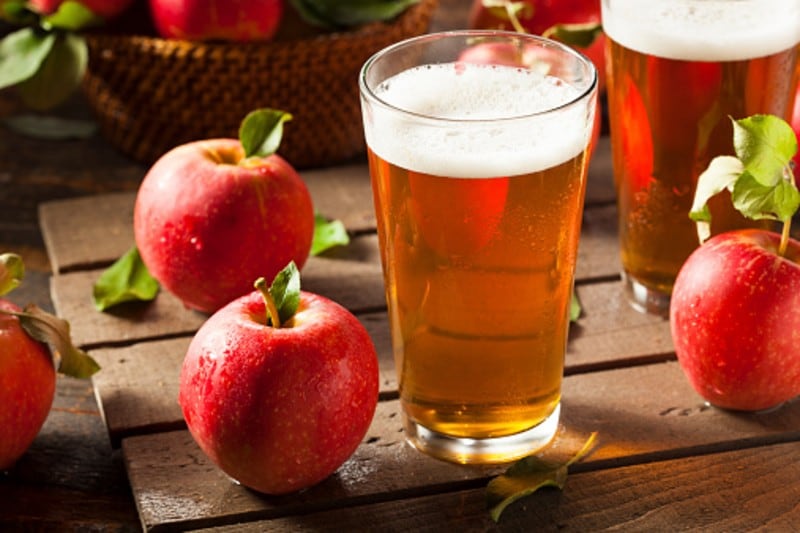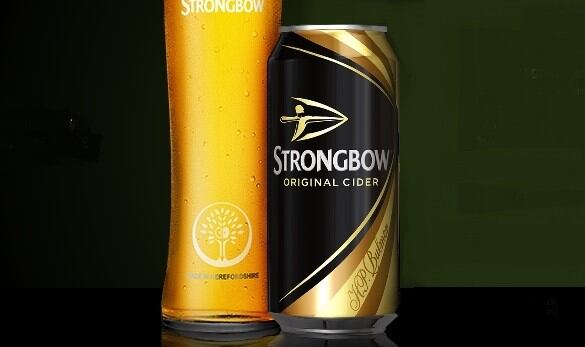The cider industry in Japan has been on the rise in recent months, not least propelled by importers traditionally dealing in wine imports looking to diversify their portfolios. Within this growth, ciders from Australia have emerged as a particularly popular choice for Japanese consumers.
“This rise in popularity is partially due to the apples used - unlike traditional ciders from England or France which use only cider apples and tend to have a more complicated or tannic taste, these ‘modern ciders’ from Australia use a blend of cider apples and culinary apples which make a lighter, crisper cider that is easier to drink,” local cider firm inCiderJapan owner and cider industry expert Lee Reeve told FoodNavigator-Asia.
“This form of cider has already been proven to be popular with the Japanese palate, plus the flavours are familiar and the apples easily attainable in Japan e.g. Fuji apples, Pink Lady apples, Gala apples and so on.
“The other very important driver here is packaging, as traditional ciders come in 750ml bottles which many struggle to finish, but Australian ciders tend to come in 330mn bottles or cans which has a big impact as Japanese consumers find these more accessible and appealing where smaller servings are both easier to drink and to finish off at one go.
“Australian ciders also match Japanese cuisines very well, going back to the lighter, crisper flavours, which has also helped to boost their popularity here.”
He also predicts that Japan is on the cusp of its first cider boom – as well as its first crash.
“Just like the craft beer boom happened in Japan about 10 years ago, cider is also getting its first boom which likely also means its first crash is on the way,” said Reeve.
“By this I mean that a lot of people are getting excited about it, with Japan seeing cider producers grow by two to three times in the past year and there are a lor of new imports too so the industry will boom, but at the same time there will be a lot of cider in Japan – not all of it good quality – and the first crash will come when firms realise that some product is not doing well.
“This is a natural progression for all industries, and the challenge for the cider sector in Japan now is to educate consumers on the difference between good quality craft cider and variants produced commercially or with lack of experience, oftentimes from concentrates or with high sugar, which [could impact quality and taste].”
As Japanese consumers look for healthier alternatives in their drinking, he added that attracting and retaining consumers will very much depend on exposing them to proper craft cider with no added sugars to show them that this is in line with the current trends.
“Many consumers are turning to Australian cider as an alternative beverage which is ‘as healthy an alcoholic beverage as can be chosen’, as the trend for gluten-free, vegetarian and a healthier lifestyle is on the rise, and cider’s lower-calorie, zero carb features are playing a big part in it’s popularity,” he said.
“So the cinch at this point is making sure consumers get the good stuff first, so they know what good cider is and the industry can get their loyalty and convert them to repeat, long-lasting consumers as opposed to people coming in and trying once, not liking what they get then never trying it again.”
Troubling Japanese alcohol regulations
Japan is at present undergoing its fourth extension of a state of emergency, and the alcohol industry, including cider, is suffering the brunt of this with many government restrictions put in place particularly targeting the sector.
“The government has asked restaurants and bars not to serve alcohol, and also asked sellers such as us to not supply these food service outlets – but alcohol is allowed for sale in supermarkets and convenience stores,” said Reeve.
“There is a lot of confusion as no one dares to buy and sell now and many establishments are feeling the impacts – foodservice outlets make up some 60% of our sales, and we can’t even do anything about this until the ban ends on August 22, and even then we don’t know what will happen.
“Things do look pretty grim – the restaurants are partially subsidised, but not anyone else – and what most people cannot figure out is why food service cannot sell alcohol whereas retailers can. Many people I’ve spoken to are down to just 10% of regular sales.”
That said, Reeves maintains optimism that the cider industry is still set to see healthy growth, and is particularly optimistic about Australian ciders - inCiderJapan is currently Japan’s largest importer of Australian cider brands.
“In addition to the flavour and packaging suitability, marketing Australian ciders in Japan also makes economic and practical sense considering how close both geographies are, and there’s also a natural interest in Japan for Australian products,” said Reeve.
“Also taking into consideration how Australia and China have not had the best of trade relationships recently, Japan is really a good, safe market for Australia to invest time and effort in.”
And indeed, Australia has exhibited a lot of interest in developing Japan as a main cider market.
“Australia will be focusing on Japan as a main market of interest for cider exports for 2020 and 2021 – at present we are in in collaboration with Australian cider industry body Cider Australia and the New South Wales Department of Primary Industries on initiatives to promote Australian cider in Japan,” he said.
inCiderJapan recently held a cross-country seminar on Australian cider for a mainly Japanese audience, primarily local alcohol importers and retailers, featuring Australian cider brands such as Cheeky Grog Co., Lobo Cider, Sydney Brewing, Flying Brick Cider and Darkes Brewing.
The most popular Australian cider imports into Japan currently are pure apple-based, fruity blends such as apple and pear, and hops ciders where hops are steeped in the cider for the aroma and a bitter taste profile.





